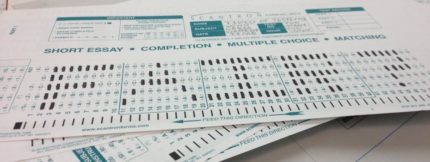There is a way to use rewards to improve student performance on standardized tests: Pay them cold cash! That was the conclusion of a fascinating study on youngsters and the power of rewards done by Stephen D. Levitt, author of the instant classic, Freakonomics, and several other researchers who ventured into the Chicago public schools with him.
The problem with the current reward system for schools is that it works counter to basic human nature and the laws of something psychologists call “hyperbolic discounting.” In other words, people are less likely to respond positively to rewards if they won’t receive them until a later date. As the article on the Atlantic Monthly website described it, if someone offered you $20 to do 20 push-ups, you would be much more likely to do them if they were dangling a $20 bill in front of you than if they said they would wire you the money in a week or a month—even though $20 should be just as valuable to you in a week or a month as it is right away. Many students have the same somewhat illogical reaction to the rewards of education—it’s hard to get excited about the great job and big house waiting for you in 15 or 20 years if you put forward your best effort on the standardized test sitting in front of you.
But Levitt and company offered students money or trophies as a reward for test performance and reached some intriguing conclusions:
- The more money the students were offered, the harder they were willing to work.
- The rewards were powerful when framed as losses rather than gains—people are more protective of money we have than we are aggressive about seeking money we don’t yet have. (So the students are told before the test, “I am giving you $20 now, but I am taking it away if you fail.”)
- When students were told the rewards would come later, there wasn’t much improvement in their performance.
“[Standardized] tests are super-high-stakes for instructors and principals, where they can determine who keeps a job and where state resources are spent,” writes the article’s author, Derek Thompson. “But they are relatively low-stakes for individual students in the short-term, especially if those students aren’t looking to go to college and don’t care very much about a weak grade. This paper’s clever conclusion is that we can manipulate lessons from economics and psychology to trick/bribe/nudge students toward spending more from their attention budget on these tests.”
While this lesson may not have much use for making public policy changes—we can’t envision a school district that would be willing to pay students for taking tests—it certainly can be put to use by parents looking to nudge their youngsters toward better academic performance.


